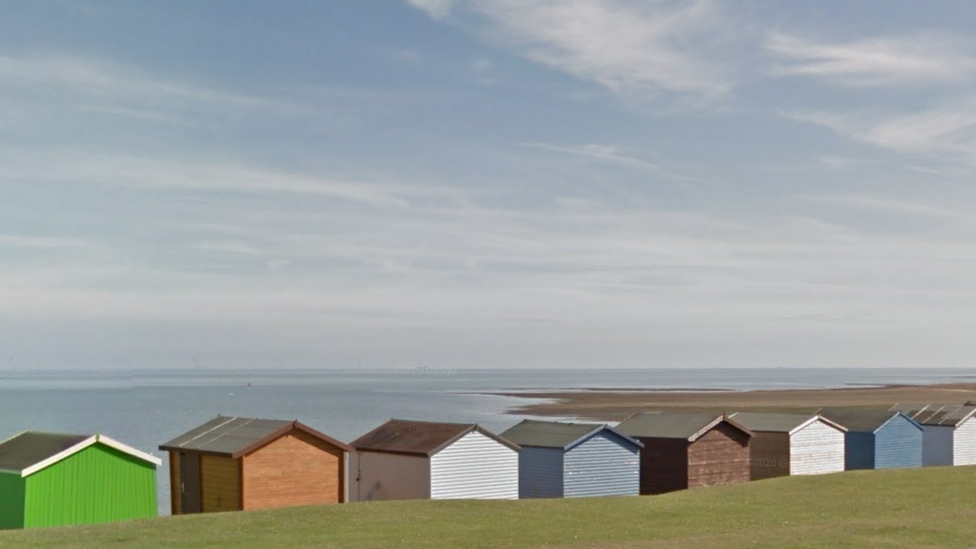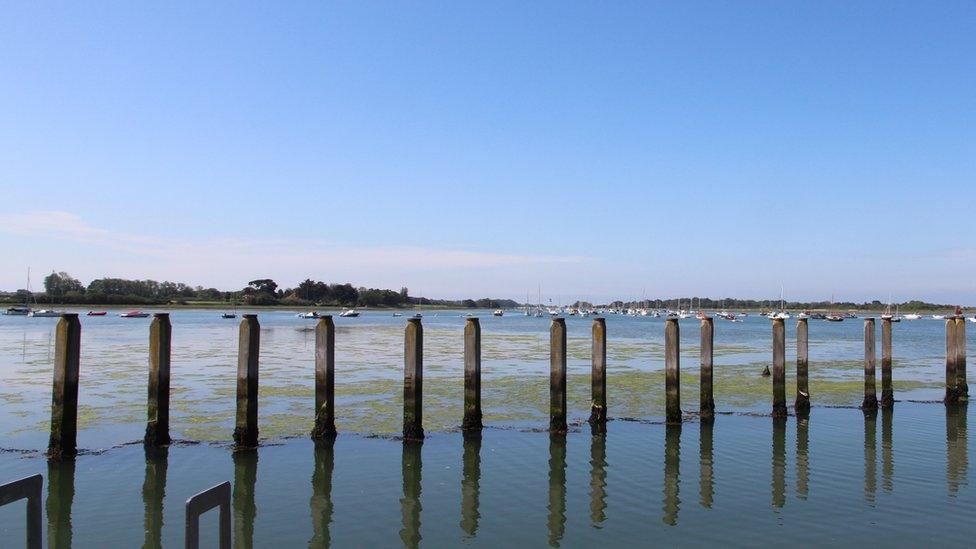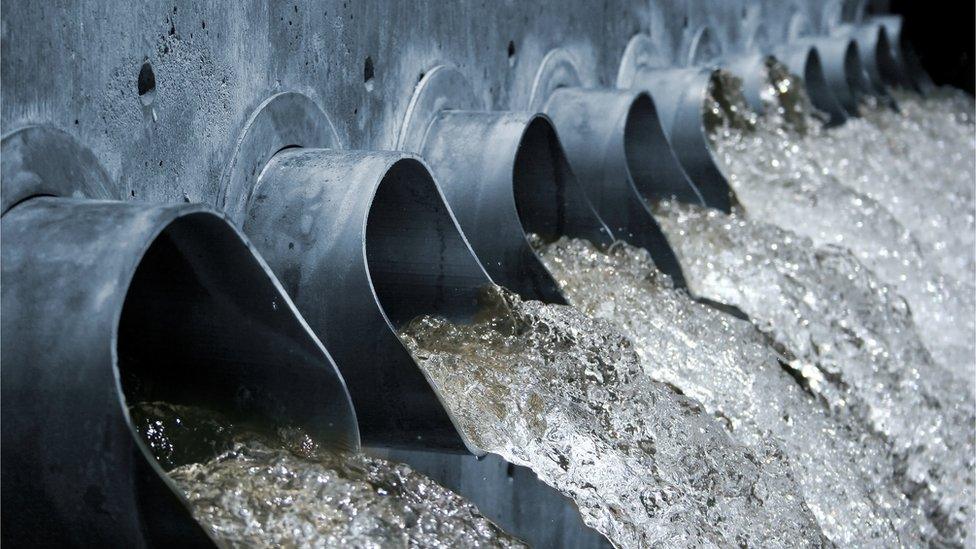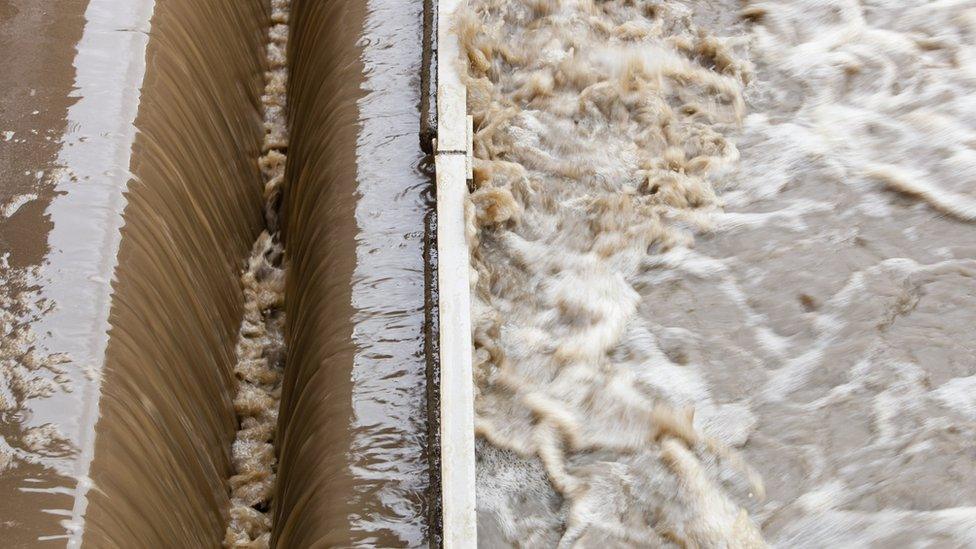Southern Water denies deliberately dumping sewage in coastal waters
- Published

Southern Water illegally dumped untreated water at 17 sites, including Swalecliffe in Kent
Southern Water has denied deliberately dumping raw sewage into seas and rivers on thousands of occasions to avoid investing in its treatment works.
The company admitted 6,971 illegal spills from 17 sites in Hampshire, Kent and West Sussex between 2010 and 2015.
The Environment Agency allege the offences were deliberately committed for financial gain.
Lawyers for Southern Water told Canterbury Crown Court the spills were the result of "negligence".
Richard Matthews QC, defending, said claims senior figures made a deliberate decision not to invest in maintenance and improvements were "an allegation without foundation".
He said it was wrong to suggest "someone decided we are not going to borrow money to fund this, instead we are going to pay a dividend to the pension fund and pensioners who ultimately own the shares.
"That dividend just wasn't paid and the [capital maintenance] budgets were spent."

The company illegally discharged raw sewage into the environment in Bosham, West Sussex
Mr Matthews rejected claims the company had concealed spills and deliberately avoided informing the Environment Agency.
It was not a "cabal of senior figures sitting in some remote location plotting how not to report matters to the Environment Agency, in fact it was a group of technically-qualified people doing their best with what was an early system".
A new board of directors had since been appointed, who had expressed "sincere regret" and vowed to "improve corporate culture and environmental performance," he told the court.

In March 2020, Southern Water admitted 51 counts at Maidstone Crown Court, covering discharges of untreated sewage from sites in:
- Eastchurch on the Isle of Sheppey, Kent
- Slowhill Copse in Marchwood, Hampshire
- Beaulieu, Hampshire
- Millbrook, Hampshire
- Budds Farm in Havant, Hampshire
- Swalecliffe, Kent
- Queenborough, Kent
- Sittingbourne, Kent
- Teynham, Kent
- Herne Bay, Kent
- Ashlett Creek, Fawley, Hampshire
- Bosham, West Sussex
- Chichester, West Sussex
- Portswood in Southampton, Hampshire
- Thornham in Emsworth, Hampshire
- Woolston in Southampton, Hampshire
- Diamond Road, Whitstable, Kent

An investigation began after oyster beds in the River Swale were found to be contaminated with E. coli, which suggested they had been exposed to untreated sewage.
After reviewing company records, the Environment Agency found evidence of illegal spills at 17 sites across three counties spanning nearly six years.
Water companies are permitted to discharge untreated waste water into the environment during periods of heavy rain to prevent sewers backing up.
However, the Environment Agency found that on thousands of occasions untreated sewage had left Southern Water sites through this route during periods of lower rainfall.
On other occasions, storm tanks had been left full of sewage, when the contents should have been returned to the works for treatment, it said.
The hearing continues and a sentence is expected to be handed down on Friday.

Follow BBC South East on Facebook, external, on Twitter, external, and on Instagram, external. Send your story ideas to southeasttoday@bbc.co.uk
Related topics
- Published25 June 2019

- Published16 July 2019
